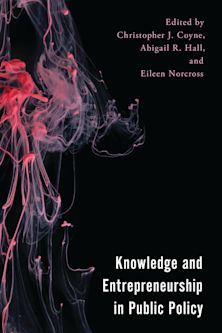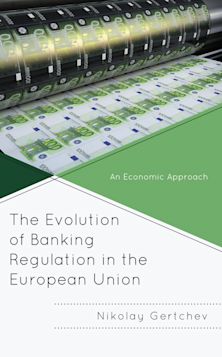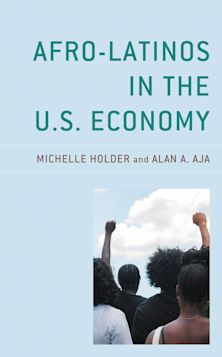- Home
- ACADEMIC
- Economics
- Introductory & General Economics
- Reinventing the Cuban Sugar Agroindustry
Reinventing the Cuban Sugar Agroindustry
Jorge F. Pérez-López (Anthology Editor) , José Alvarez (Anthology Editor) , Pedro E. P. de Assis (Contributor) , Devry S. Boughner (Contributor) , Jonathan R. Coleman (Contributor) , Sergey Gudoshnikov (Contributor) , G B. Hagelberg (Contributor) , Lindsay Jolly (Contributor) , Tim Josling (Contributor) , Findlay M. Pate (Contributor) , Jehova Peña (Contributor) , Brian H. Pollitt (Contributor) , Armando H. Portela (Contributor) , Guilherme Rossi Machado, Jr (Contributor) , Joseph L. Scarpaci (Contributor) , George H. Snyder (Contributor) , Sergio C. Trindade (Contributor) , Matias F. Travieso-Diaz (Contributor)
Reinventing the Cuban Sugar Agroindustry
Jorge F. Pérez-López (Anthology Editor) , José Alvarez (Anthology Editor) , Pedro E. P. de Assis (Contributor) , Devry S. Boughner (Contributor) , Jonathan R. Coleman (Contributor) , Sergey Gudoshnikov (Contributor) , G B. Hagelberg (Contributor) , Lindsay Jolly (Contributor) , Tim Josling (Contributor) , Findlay M. Pate (Contributor) , Jehova Peña (Contributor) , Brian H. Pollitt (Contributor) , Armando H. Portela (Contributor) , Guilherme Rossi Machado, Jr (Contributor) , Joseph L. Scarpaci (Contributor) , George H. Snyder (Contributor) , Sergio C. Trindade (Contributor) , Matias F. Travieso-Diaz (Contributor)
This product is usually dispatched within 1 week
- Delivery and returns info
-
Free CA delivery on orders $40 or over
You must sign in to add this item to your wishlist. Please sign in or create an account
Description
One of the key issues that faces Cuban policymakers today, and will continue to face them, is what steps to take in order to ensure the future of the sugar industry. In 2002, nearly one-half of the country's cultivated land was occupied by the 156 fully functional sugar mills, more than a dozen plants and refineries, and the complex transportation infrastructure brought about by the commerce. The loss of preferential markets for Cuban sugar that arose from the demise of the international socialist community constitutes a crisis that the Cuban government has only begun to address, with a radical restructuring plan that would foresee the reduction of sugar land and the elimination of about 100,000 jobs, for increased economic emphasis on tourism. The radical premise of this volume is that there is a future in the twenty-first century for a reinvented Cuban sugar agroindustry, responsive to market signals, organized around smaller and more agile production units, producing raw sugar as well as high value-added outputs, and using some of the facilities to produce ethanol and generate electricity. The editors have asked over a dozen recognized world experts on Cuban agroindustry to analyze specific topics and make recommendations that would not only reinvent an industry for effective transition to a free-market environment but that has the potential to reinvigorate the Cuban economy, providing employment opportunities and generating wealth for generations of Cubans to come.
Table of Contents
Chapter 2 The Historical Geography of Cuba's Sugar Landscape
Chapter 3 The Cuban Sugar Agroindustry at the End of the 1990s
Chapter 4 The Technical Transformation of Cuba's Sugar Agroindustry
Chapter 5 Patterns of Cuba's International Sugar Trade
Part 6 The Changing International Environment
Chapter 7 World Sugar Supply and Demand Perspectives Until 2010 and Beyond
Chapter 8 Sugar Trade Liberalization: The WTO and Regional Free Trade Agreements
Chapter 9 The U.S. Market as an Option for Cuban Sugar
Part 10 Transition Issues
Chapter 11 The Restructuring of Cuba's Sugar Agroindustry, 2002-04
Chapter 12 Cuba's Costs of Sugar Production: Past, Present, and Future
Chapter 13 Expropriation Claims Involving the Cuban Sugar Industry
Part 14 Potential Paths for the Cuban Sugar Agroindustry
Chapter 15 Sugarcane Varieties and Their Role in Diversification
Chapter 16 The Feasibility and Benefits of Rice-Sugarcane Rotation
Chapter 17 Sugarcane and Its By-Products for Cattle Feed
Chapter 18 Organic Sugar: A Real Opportunity for Cuba?
Chapter 19 Sugar, Ethanol, and Electricity: The Diversity that Can Save the Sugarcane Sector
Chapter 20 The Sugarcane Biorefinery
Chapter 21 Lessons from the Restructuring of the Sugar Agroindustry of the Dominican Republic
Chapter 22 Reinventing the Cuban Sugar Agroindustry: Challenges and Opportunities
Product details
| Published | Aug 04 2005 |
|---|---|
| Format | Hardback |
| Edition | 1st |
| Extent | 350 |
| ISBN | 9780739109991 |
| Imprint | Lexington Books |
| Dimensions | 235 x 160 mm |
| Series | Rural Economies in Transition |
| Publisher | Bloomsbury Publishing |
About the contributors
Reviews
-
For centuries sugar was the engine of the Cuban economy, but in 2002 the industry was cut down to half its size, thus ending its predominance. This superb collection of essays written by internationally known experts in several relevant topics, and skillfully edited and integrated, provides the best analysis available of the demise of Cuba's sugar industry. Furthermore, the authors study in depth the 'reinvention' of the industry in probable future moves to the market and democracy. It should be read by all those interested in Cuba, sugar, and Latin America.
Carmelo Mesa-Lago, Distinguished Service Professor Emeritus of Economics and Latin American Studies, University of Pittsburgh
-
Despite the collapse of the Cuban sugar industry in the 1990s, it is difficult to think about the economic future of the island without factoring in the once-dominant sugar industry. In Reinventing the Cuban Sugar Agroindustry, the editors have brought together a blue-ribbon group of international experts who analyze the condition of the industry and potential avenues for its future growth taking into consideration a very complex international economic environment. This volume is essential to understanding the current woes of the Cuban industry and some of its alternatives under a market-oriented system.
Sergio Diaz-Briquets, senior vice president, Casals and Associates
-
Seventeen papers consider the background, transition, and potential future paths of Cuba's sugar agroindustry.
Journal of Economic Literature
-
Sugar is a permanent part of Cuba's culture, geography, and economy, but massive production, Soviet subsidies, and U.S. quotas are things of the past. In this comprehensive volume, Jorge Pérez-López and José Alvarez help us understand sugar's roots in Cuba, its current restructuring, and the options for a downsized, economically viable industry that will carry into the 21st century. A real gift to students of Cuba's economy, and to those who ponder its future.
Philip Peters, vice president, Lexington Institute



































